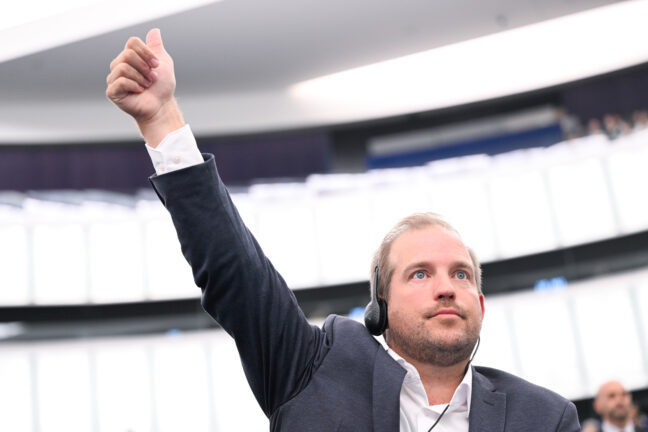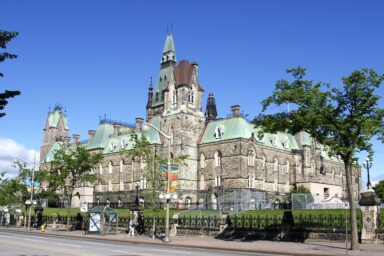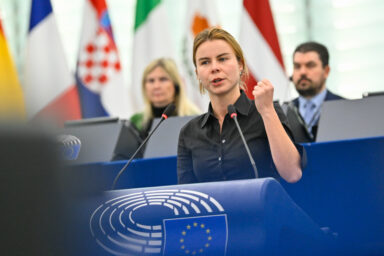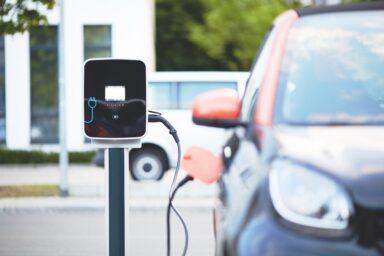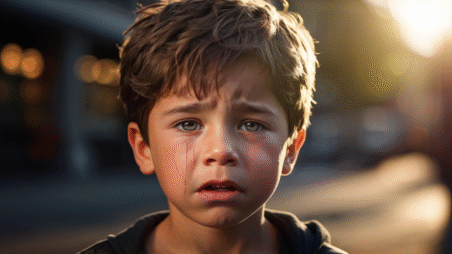The European Parliament is set to expand Europol’s powers to investigate migrant smuggling and human trafficking. Speaking to EU Perspectives, rapporteur Jeroen Lenaers (EPP/NLD) acknowledged NGOs’ concerns. The increased volume of data processing could heighten the risk of fundamental rights breaches. However, he was sure that “we will manage it.”
Europol’s updated role stems from the Commission’s legislative proposals (2023) and the resulting reforms. These provide the agency with broader powers to gather and process large volumes of data on migrants and alleged facilitators. This definition includes activists and humanitarian workers. The Commission touts these measures as vital tools to disrupt criminal networks profiting from smuggling and trafficking. The agency’s strengthened cooperation with the Frontex agency also intensifies the pooling of intelligence and operational resources beyond EU borders.
What are the strengths of the file “Enhancing police cooperation in relation to the prevention, detection and investigation of migrant smuggling and trafficking in human beings, and on enhancing Europol’s support to preventing and combating such crimes” passed in the LIBE Committee recently?
We see that about 90 per cent of migrants that arrive in the EU illegally do so with the help of people smugglers. At the same time, we see that these people smugglers have developed a multi-billion euro industry. Estimates are that people smugglers earn about €6.7bn a year, which often puts these people into great danger as well. A lot of them, for instance, die while trying to cross the Mediterranean.
We also see that the coordinated, concerted effort within Europe to fight these gangs, these criminals, is not up to standards. So to address this, we have sort of really strengthened the centre against migrant smuggling and human trafficking, because it’s important. We talk a lot about migrant smuggling, because this is a very big part of it. But it’s also addressing human trafficking. We’re after the criminals behind these operations, not the people on the move themselves.
You might be interested
The focus is very much on migrants, while human trafficking is still a huge problem still in the EU as well, and this will also help there. So we will strengthen this centre that exists in Europol. At the same time, we will strengthen Europol with a 50-million euro budget and 50 posts in order to do so. Yes, we will strengthen the capacity of Europol to also do biometric data processing. We will improve the information sharing between Europol and the member states in both directions. And we will help Europol by codifying certain elements on issues like deployments or operational task forces which are already in place, and need to be stronger.
The file enjoyed the support of the majority of LIBE members. But some civil society critics have emerged as well. How could you reply to their concerns?
I always listen carefully to NGOs – such as EDRi and Equinox – and mainly privacy rights organizations. I’ve also met some of them, such as EDRi and Equinox, in the course of the negotiations on this file. And I also like to listen to them, because if we can improve it in a way that doesn’t undermine the goals of the legislation, but also satisfies some of their concerns.
I think we all agree that the data protection framework, when it comes to biometric data, is very strong in Europol. And this revision of the mandate of Europol does not touch upon that. We don’t touch upon the general data protection framework that Europol needs to adhere to. What their concern is is that with the new powers, with more human resources, more money, the volume of processed data that will increase. For us, it was very important that we don’t touch about the very strict data protection framework in Europol.
So those safeguards are there, we refer to them. We even put additional safeguards in there in the text when it comes to biometric data handling. And I think it’s a fair compromise. Of course, there is the concern about the volume of the data that will need processing. I think we will manage with the new rules. And of course we will have the big revision of the Europol mandate, which awaits publication at some point in 2026. The sort of balance—between having Europol as an effective operational, strong law enforcement agency, and at the same time, strong emphasis on safeguarding fundamental rights—will be there as well. But in this file we don’t change anything, we don’t lower safeguards, we only provide additional tools. I’m very happy that we found a reasonable compromise, which also won the support from our Liberal and Socialist colleagues.
The political narrative on migration seems to invite polarisation. How do you intend to pursue the aim of not criminalising the people on the move themselves?
Politics is polarising in any case, which is sad. But at the same time, look at what happened in the past years. In the end, the guiding line for the work on this area is the Pact on Migration and Asylum which will see implementation next year. And there we have the clear procedures for everybody who comes here irregularly with a screening with an asylum or a border procedure, with all the safeguards for vulnerable people, for unaccompanied minors. It’s all in there.
So I think this (legislation) has passed with a strong majority from the center. So I think in that sense, yes, it is the rhetoric where we often disagree, not the actual content in practice. There is now a very up-to-date modern European legal framework on asylum and migration which really sort of answers the calls to make the distinction between refugees and economic migrants.
On top of that, you need to target the criminal gangs that make these journeys possible. And I think that’s also important for me to say. This is not only because we want to keep people out of Europe. It also often puts these people in grave danger.
We have seen images of people being pushed onto boats with electric tasers because they didn’t want to, because the sea was rough. But it’s a business model. It is not in the interest of anybody that we continue putting money in the pockets of these criminals.
As far as human trafficking is concerned, is it directly related to migrant smuggling? Or is that a different line of business?
It is related, but there is one big difference. Migrant smuggling for a large part takes place outside the European Union. It is, in a way, the easiest form of smuggling. You just need to make sure they get across the border. One shouldn’t really say that because we’re talking about human beings, but it’s true in the sense that what happens with them afterwards is of no concern to the smugglers.
When it comes to human trafficking, of course, it’s even maybe a worse situation to a certain extent. It’s because these people are brought to Europe for a specific purpose, whether it’s prostitution or other kinds of forced labour. It means that these gangs operate also within Europe. These criminal organisations are present, running these prostitution rings and all kinds of terrible forced labour. So in a way they’re linked. But there is a big internal European Union element on the territory of the EU. This makes it even more important to have better coordination and information-sharing between member states.
So are you positive that the file will pass the plenary vote later this month?
Yes. I also think we have negotiated fair legislation. It will help Europol and, at the same time, it will protect fundamental rights.
